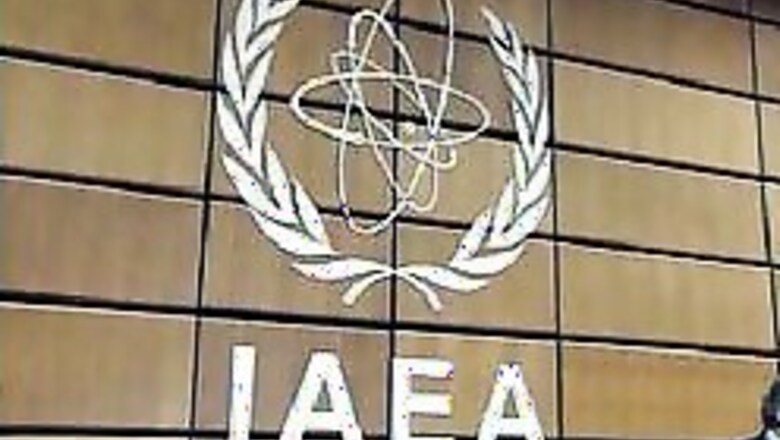
views
Washington: A noted American non-proliferation expert says the US House of Representatives made a "terrible mistake" in making a reference to Iran in the enabling Bill on the Indo-US nuclear deal.
It was equally "unfair and wrong" to suggest that "we bought India's vote" against Iran in the International Atomic Energy Agency (IAEA), according to the vice president for studies and director for non-proliferation at the Carnegie Endowment for International Peace, George Perkovich.
Knowing India and its role as a major architect of the IAEA, they would have done it on their own, but overt US pressure may have made it more difficult for New Delhi to carry out the policy it had already chosen, he said in a lecture at the World Affairs Council.
The enabling Bill passed by the House in July 2006 contains language on securing "India's full and active participation in United States efforts to dissuade, isolate and, if necessary, sanction and contain Iran for its efforts to acquire weapons of mass destruction."
An amendment seeking to make such cooperation binding was defeated by a vote of 235-192.
But the enabling legislation approved by the Senate Foreign Relations Committee contains no language on Iran.
Perkovich was not sure what purpose would be served by including such non-binding policy declarations in the legislation.
One such provision required the administration to report back if India had moved any uranium to its weapons programme but did not say how.
This was something akin to the Pressler amendment of 1986 whereby the president had to merely certify that Islamabad did not have the bomb to be able to sell weapons to Pakistan to arm the Taliban to fight the Soviets.
But notwithstanding differences over finer points, the deal is likely to be cleared by the US Congress as relationship with a friendly democracy like India was considered more important than any concerns one may have about non-proliferation, Perkovich said.
The debate in the Congress was essentially not about issues but about the process.
The heads of House and Senate foreign relations panels, Henry Hyde and Richard Lugar, were angry over perceived bypassing of the legislature, and were keen to get the Congressional prerogative back.
Thus a couple of things were added to the original legislation proposed by the Bush administration – the two-vote process and the clause for a consensus in the Nuclear Suppliers Group (NSG) on whom to sell the nuclear fuel.
With India emerging as the dominant power in Asia and China as its only potential competitor, a strategic relationship with India becomes especially attractive to the US to balance the two, he said.
Apart from strategic reasons, President George Bush really wanted it because he wished to do in India in 2005 what Henry Kissinger, as Secretary of State, did in 1971 in opening up to China.
In the India deal, Perkovich saw a sea change in US philosophy about nuclear weapons.
In the sixties, nuclear weapons as such were bad. Now bad guys with nuclear weapons were bad but good guys with nuclear weapons were good.
PAGE_BREAK
However, this posed a problem. For India is considered a "good guy", but one is not too sure about Pakistan.
Thus the Congress' resort to writing in the legislation general criteria which only India would meet.
Describing this as a "revolution in thinking", Perkovich said this changes the focus of non-proliferation regime from weapons to who owns them.
It was no longer about 'same rules for everybody', but about 'different rules for good and bad guys' like the rules for owning guns in America.
From the non-proliferation point of view, the Indo-US nuclear deal was not a great gain, but possibly a loss.
However, from the strategic point of view, it was very important for improving relations with India, Perkovich said.
On the other hand, with heightened expectations after the deal, US may at times feel that India is not doing stuff for it.
But Americans must realise that it was no panacea as India is a democracy with a billion plus people and it may have differences with US on a number of issues.
Similarly, India has got to understand the pitfalls and bumps ahead and realise that it's not going to be a never-ending honeymoon.
Thus, on balance the nuclear deal was not 'the end of the world' for Nuclear Non-Proliferation Treaty nor was it nirvana for Indo-US relations, Perkovich concluded.

















Comments
0 comment